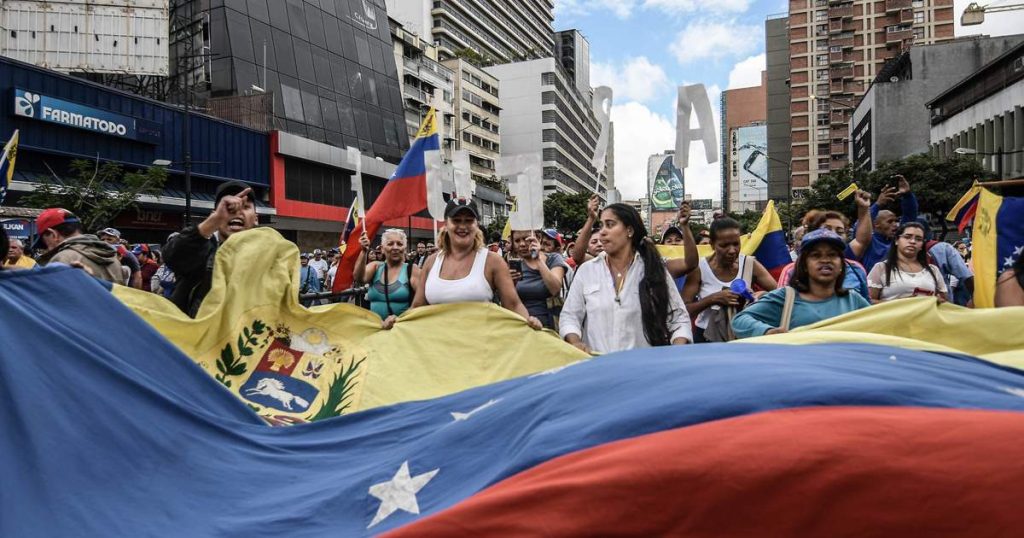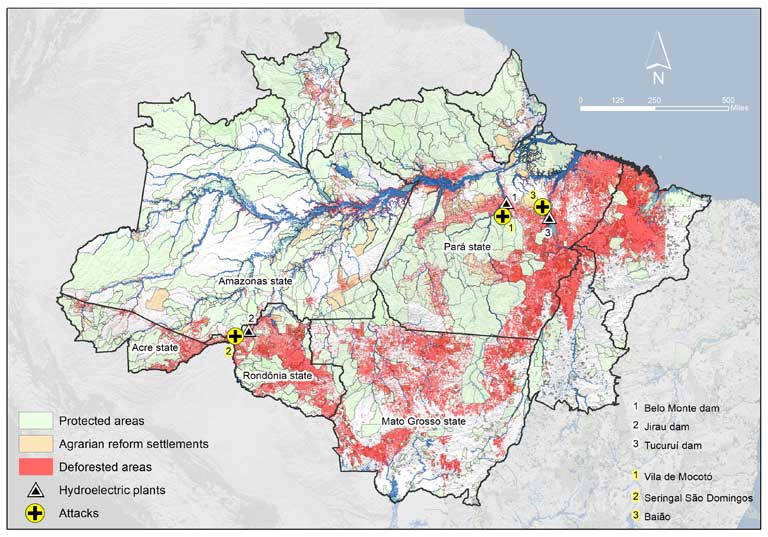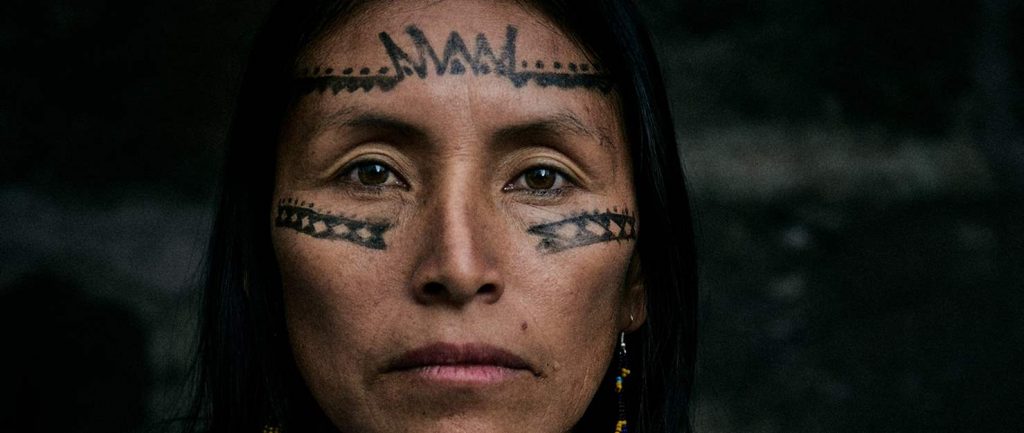In this month’s newsletter, we report on a disturbing regional development as five governments seek to limit the scope of action of the Inter-American Human Rights Commission. There are updates on the situation in Venezuela, Brazil and Colombia, where human rights remain under serious threat, as well as details of a new campaign to defend the rights of women human rights defenders in the Ecuadorian Amazon. There are three options for action, which are highlighted in red.
REGIONAL
The governments of Argentina, Brazil, Colombia, Paraguay and Chile have signed and delivered a statement to the Inter-American Commission on Human Rights (IACHR) calling on “the organs of the Inter-American system”, when taking action, to take into account: the critical importance of the principle of subsidiarity; the measure of autonomy enjoyed by States “to decide the most appropriate way of ensuring rights and guarantees, in order to give effect to their democratic processes”; the strict application of the law in resolving cases brought to their attention; and consideration of the “political, economic and social realities of States”.
Amnesty has described this as a major blow for the victims of human rights violations in the Americas “because it seeks to reduce the independence and autonomy of the organs of the Inter-American system” and a blatant attempt to weaken and shackle the Inter-American system.
VENEZUELA
 Amnesty has been documenting the grave human rights violations and crimes under international law that have taken place in Venezuela since the crisis worsened in January. It has documented extrajudicial executions, unlawful use of lethal force, arbitrary mass arrests and ill-treatment of people who speak out against Maduro’s government.
Amnesty has been documenting the grave human rights violations and crimes under international law that have taken place in Venezuela since the crisis worsened in January. It has documented extrajudicial executions, unlawful use of lethal force, arbitrary mass arrests and ill-treatment of people who speak out against Maduro’s government.
Amnesty has confirmed that at least four people have been killed, more than 200 injured and 205 arrested during state repression of protests across Venezuela since 30 April. It has called on Maduro to put an immediate end to his policy of repression.
Amnesty is calling on the UN Human Rights Council to set up an international, independent and impartial investigative mechanism, such as a Commission of Inquiry, into the abuses and violations committed during the crisis and we are urging the UK Government to work towards this. Please sign the petition here.
Amnesty has launched a new campaign calling for the international protection of Venezuelan migrants and refugees who have fled the massive human rights violations in Venezuela. The campaign seeks to ensure that no Latin American or Caribbean country puts up entry barriers to Venezuelan migrants and refugees and that they refrain from returning people to Venezuela. You can download a copy of Amnesty’s report Welcome Venezuela here..
BRAZIL
There have been a number of deaths due to violence in the Amazon region within the 12 days prior to 8 April in 3 probable massacres. There has been violence in areas of heavy deforestation where the building of large dams has brought a capital infusion, sent land prices soaring, and invited land speculation by land grabbers, loggers and ranchers. A Brazilian landless movement peasant leader and a leading dam activist are among those killed. The attacks have been concentrated in areas centred around the Belo Monte mega-dam; in the Madeira basin near the Jirau dam; and near the Tucuruí dam on the Tocantins River in Pará state.
Investigations are continuing, but some witnesses are saying more than 9 people have been killed, especially rural landless peasant workers.

There is a significant amount of further information regarding the killings and the general situation in the article accessible via the link above.
A Telesur article reports that thousands of people marched with a purpose during this year’s free land encampment event on 26 April, demonstrators spending the first of the three-day demonstration outside the congressional building. Over 1,000 erected tents on the front lawn of Brazil’s congress in a peaceful protest against President Bolsonaro’s vow to expand mining and industrial farming into protected Indigenous territories.
Sonia Guajajara, former vice-presidential candidate and indigenous leader, has stated, “the President wants to give the indigenous territories to the United States, to foreigners, to explore our natural resources, we fight not only for our rights, our constitutional rights, our right to exist”.
A Rio Times report dated 28 April states that, according to data from Global Forest Watch, Brazil decimated 1.3 million hectares of forests in 2018, mostly in the Amazon region and specifically near or in indigenous territory.
An Inter-American Commission on Human Rights (IACHR) press release is concerned about killings committed by police officers in Brazilian urban contexts, and the excessive use of force by public security forces. Allegations of murders linked to police activity, indicate that poor suburban communities with high concentrations of Afro-descendant persons tend to bear the brunt of that violence.
According to data issued by the Public Security Institute of the state of Rio de Janeiro, operations involving officers of the State led to 305 deaths in that State in the first two months of 2019 alone. According to data issued by the same institution, such crimes increased by approximately 18% relative to the first two months of 2018.
The IACHR highlights the importance of continuing to strengthen the independence and autonomy of justice system operators and supervision mechanisms involved in investigating the activities of civilian and military police officers. The Commission is also concerned that authorities linked to the leadership of those same security forces are being enlisted to investigate and prosecute such crimes.
COLOMBIA
Amnesty International has issued an Urgent Action, Thousands in need of urgent protection. 7,000 people from Indigenous and Afro-descendant communities in Bojayá, Chocó (western Colombia) face risk to their life and forced displacement as the guerrilla National Liberation Army (ELN) and the paramilitary group Gaitanistas Self-Defence Forces of Colombia increase hostilities in their territory. Several community leaders have been killed recently. Please send appeals in line with the recommendations. There is a letter to the president you can download here.
Widespread press reports state that the US is lobbying Colombia’s Congress and Constitutional Court to reject the bill, recently vetoed by President Duque, to provide the JEP (Special Jurisdiction for Peace) with a statutory law. The JEP was created to ensure justice for the victims of the conflict within the framework of the principles of truth, reparation and non-repetition. Reports suggest that the US has threatened to cut its aid to Colombia if parts of the law are not changed. However, the Colombian House of Representatives voted in favour of the bill, which must now go to Colombia’s Senate and then back to President Duque for his signature. The US provides aid worth $391 million to Colombia.
The National Indigenous Organisation of Colombia (ONIC), whose call for an uprising was reported in April’s newsletter, failed in its objective to meet President Duque. ONIC has joined forces with trade unions and many other groups to stage a general strike on 25 April, demanding the cessation of killings and forced displacement of indigenous people. ONIC claims that 63 indigenous people have been killed in Colombia since Iván Duque was installed as President in August 2018. They denounce the use of indigenous people as human shields in battles between the guerrilla group ELN and paramilitary groups. Other groups participating in the general strike opposed the new National Development Plan of the Duque administration.
The Internal Displacement Monitoring Centre reports that nearly 4,000 people were displaced in the 5 weeks between 12 March to 15 April 2019 due to the conflict in Colombia. They were fleeing battles involving the Army, the guerrilla group ELN, paramilitaries and organised criminal gangs.
ECUADOR
 Throughout 2018 in Ecuador, Amnesty recorded a series of attacks and threats perpetrated against women human rights defenders and leaders: Patricia Gualinga, Nema Grefa, Salomé Aranda and Margoth Escobar of the Mujeres Amazónicas (Amazonian Women) collective. Despite the change in rhetoric since President Moreno came to power, this situation has demonstrated serious failings in the State’s capacity and will to conduct criminal investigations adequately and effectively and to ensure protection measures. The Ecuadorian authorities have an opportunity to put an end to this serious situation and guarantee Amazonian Women – and anyone defending rights in Ecuador – justice and protection by implementing a National Protection Policy and a Protocol for investigating crimes against them.
Throughout 2018 in Ecuador, Amnesty recorded a series of attacks and threats perpetrated against women human rights defenders and leaders: Patricia Gualinga, Nema Grefa, Salomé Aranda and Margoth Escobar of the Mujeres Amazónicas (Amazonian Women) collective. Despite the change in rhetoric since President Moreno came to power, this situation has demonstrated serious failings in the State’s capacity and will to conduct criminal investigations adequately and effectively and to ensure protection measures. The Ecuadorian authorities have an opportunity to put an end to this serious situation and guarantee Amazonian Women – and anyone defending rights in Ecuador – justice and protection by implementing a National Protection Policy and a Protocol for investigating crimes against them.
Amnesty has launched a new campaign aimed at achieving justice and protection for these women, as well as others who are protecting the Amazon from political and economic interests linked to large-scale extractive projects on Indigenous territories. The full story is in the campaign digest ‘They will not stop us’ Ecuador: Justice and protection for Amazonian Women, defenders of the land, territory and environment and you can sign a message to the Ecuadorian Attorney General here.
All the best,
South America Team – Richard Crosfield (Colombia), David Palmer (Brazil) and Graham Minter (rest of South America).